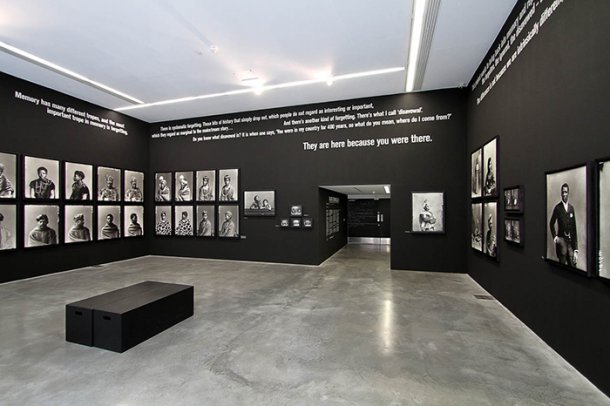Entrevista ao curador de Black Chronicles II
Publicado20 Out 2014

Black Chronicles II apresenta, na Autograph ABP, Rivington Place, em Londres, imagens do grupo de cantores sul-africanos do African Choir em tourné pela Grã-Bretanha entre 1891 e 1893, as primeiras fotografias tiradas a negros em Inglaterra. A exposição é dedicada Stuart Hall, intelectual jamaicano, fundador dos Cultural Studies, em Birmingham, nome indissociável da problematização das identidades da diáspora.
A Arc Magazine entrevistou o curador Renée Mussai, sobre o processo que deu origem a esta mostra e a razão da dedicatória a Stuart Hall.
Varala Maraj: Can you share the reasons behind dedicating this exhibition to Hall?
Renée Mussai: Professor Stuart Hall has been our chairman for 17 years, from 1991 until his retirement in 2008. His critical thought and groundbreaking work over many decades has always been very significant and influential to us as an organisation, especially his interest in the visual in relation to questions of difference, race and representation, ethnicity – he has been a tremendous source of strength and support for Autograph ABP over the past two decades. His generosity of spirit and insight has been fundamental to the development of our organisation, in particular also with regards to the establishment of Rivington Place in 2007, for which he acted as project champion with unparalleled dedication for many years.
VM: What inspired you to curate and research as extensively as you did for this project?
RM: The exhibition Black Chronicles II represents the first public showcase of an ongoing research programme entitled ‘The Missing Chapter’ supported by the Heritage Lottery Fund over three years: it is the outcome of the first year of archive research.
Because this particular aspect of photographic history in Britain is so under-researched and thus far very little material pre-dating the 20th century has been made available, we felt a strong desire and need to redress this absence, this invisibility.
(...)
We were certain that by looking deep enough into archive, we would uncover photographs with the potential to radically change how we perceive the black subject in Victorian / Edwardian Britain … and to allow us to fill a gap, create new knowledge and ameliorate existing visual histories in relation to the representation of black people in the UK
A entrevista completa, aqui
